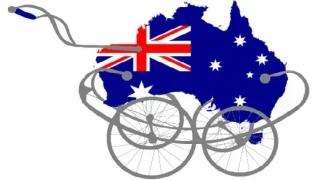
All is quiet in the Pacific. The past year has seen no coups or new insurrections. Nauru voted out those who led it from riches to rags and now struggles to save something from the wreckage. But for the 30th successive year, there has been no growth. With aid running at more than $1.5 billion a year to soften the effects of stagnation, Pacific governments continue to opt for inaction.
Stagnation, poverty and descent into crime and conflict are not inevitable but the result of Pacific governments’ policy choices and the implicit support of aid for those choices. The Pacific is rich in resources, has a benign climate and is near the fastest growing markets in the world. This paper argues that all Pacific islands could be viable at high standards of living within a generation if they adopted policies that match their endowments. Their aid and trade partners could help them to such outcomes by supporting agricultural productivity and job creation. The paper is a road map for rapid growth and development in the Pacific.
Every community has to earn its living. In the Pacific, this means cash crops in addition to food gardens, jobs in labour intensive industries such as tourism and manufactured exports, and jobs in construction and services. Resource development – minerals, timber and fish – will only bring net benefits on top of a productive, labour intensive economic base. The policy measures needed to make every Pacific island viable are well known: abandoning communal land ownership for individual property rights; deregulating counterproductive rules that prevent the growth of an informal sector, eliminating protectionist measures, freeing up labour markets and downsizing and privatising the public sector. When public employment shrinks as a proportion of total employment and rising economic activity increases public revenues, increased expenditures on health and education will become possible without loss of macroeconomic stability.
Economic reform is not enough. Overblown governments impose heavy costs, absorb entrepreneurial talents and encourage corruption. Past programmes to improve ‘governance’ have consolidated fraught institutions at the cost of investment in infrastructure, health and education. The Pacific needs radical reforms of government as well as the economy before policing and law can bring a new morality to public and civil life.
Because colonial powers failed to create regional arrangements for the Pacific at independence, it will now take time before individual island states become viable so that regional arrangements can work. The smaller islands may find links to developed countries more conducive to viability at high living standards than independence or federation with other small states.
Preferential immigration access to Australia could damage Pacific viability. The best way to support the Pacific is through continuing trade liberalisation to reward the steps necessary to increase exports from the Pacific and thus create incomes and growth. Aid should cease to be a prop for governments unwilling to choose growth and development, and focus on assisting choices for growth.
Helen Hughes is a Senior Fellow at The Centre for Independent Studies and an Emeritus Professor with The Australian National University.










